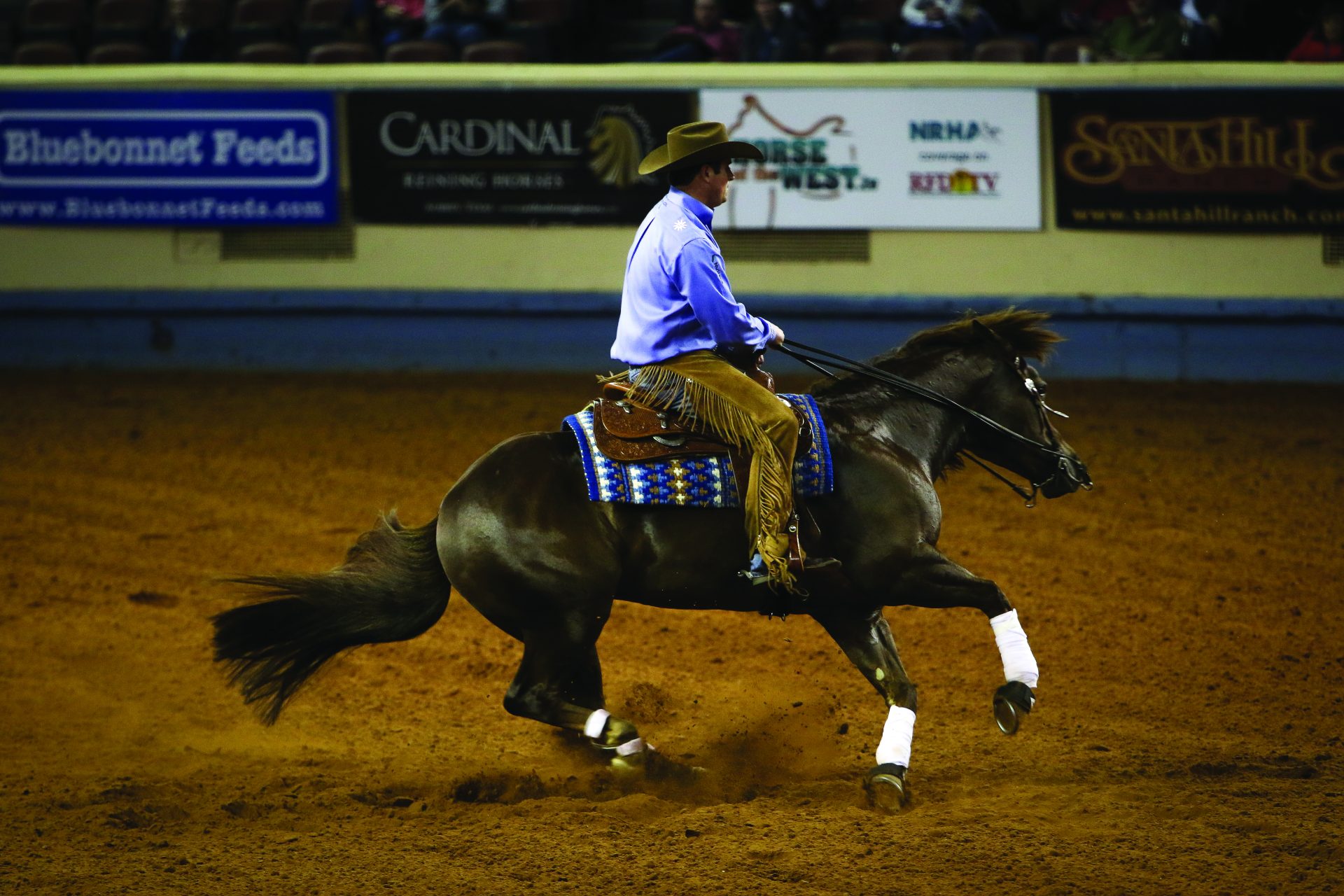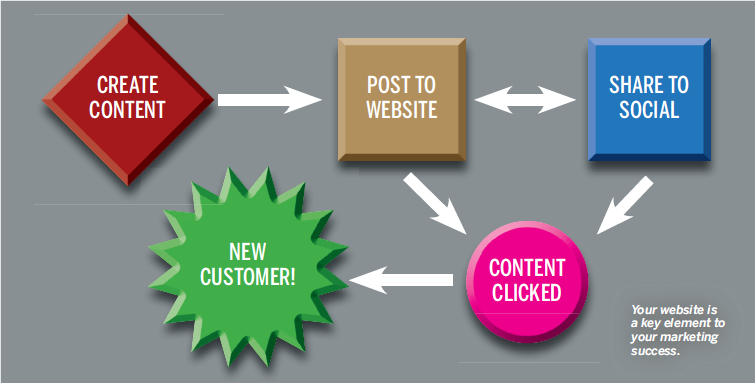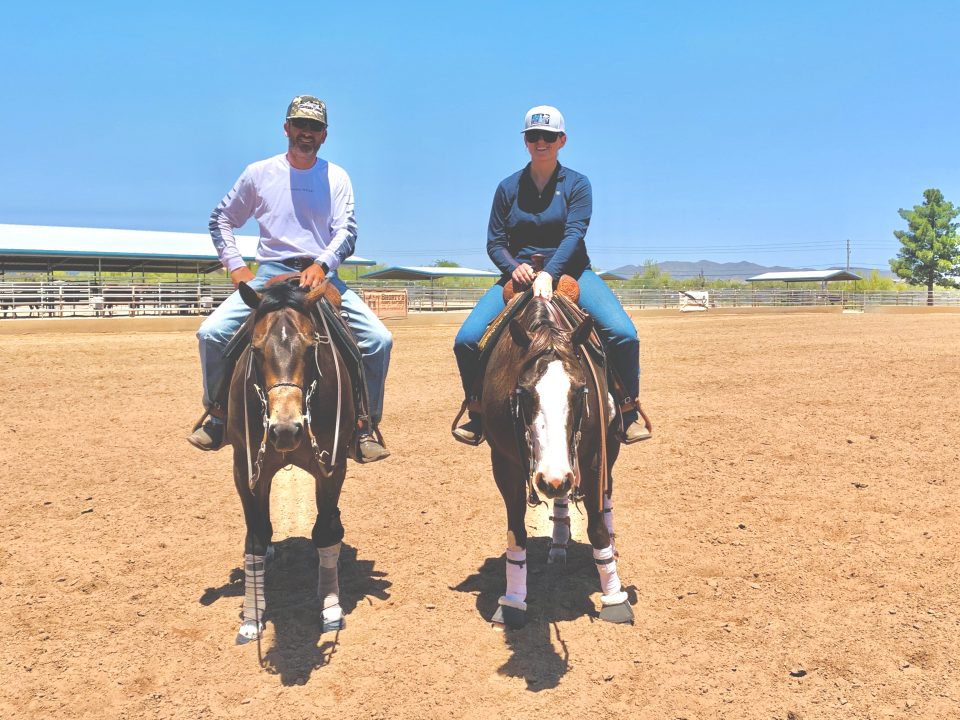Nobody knows everything about everything—unless you’re the coach.
By Megan Arszman

This is it. You’ve hung your shingle; you’ve entered your first open events. You’re officially an NRHA Professional. You’re the trainer now—no longer the assistant, taking orders from someone else. No more telling you what to do, right?
Think again.
Non pros rely on their coaches to be an extra set of eyes, to tell them the truth about how their seat is affecting their horse’s stops, and to share tips on how to count spins and shut down their horse “just like that.” They need that extra eye to help them become better at their sport. And everyone knows that the best non pros are always learning from their coaches.
So why should you be any different now that you’re a professional, out on your own? Or if you’ve been a pro for an extended time, do you know all the ins, outs, tricks, and techniques? Probably not.
Nobody knows everything. There’s a saying that we’re constantly learning. Veterinarians must attend continuing-education events regularly. Farriers attend clinics yearly. Even mechanics have to stay up to date on the latest technology to keep your rig up and running. So, of course a reining professional and coach needs to have their own coach.
In this three-part series, NRHA Professional Gaetan Gauthier will explain how you can benefit from a coach’s perspective to become the best professional you can be.
So perhaps Gautier has intrigued you and now you’re thinking you could use a coach/mentor in your barn as well. You’ll want to consider these key qualities for an effective mentor.
- Look for someone open and honest, with the ability and willingness to communicate and share their training and riding tips.
- Find a coach who’s approachable and available. If the coach is always busy, won’t return your phone calls, or blows you off, you won’t feel like you’re getting the attention you need.
- Listening skills are invaluable. A great coach and mentor listens to what you have to say, but also knows how to get you to listen in return.
- Honesty, with diplomacy, means you’ll get valuable feedback that isn’t sugar-coated but also doesn’t pull any punches.
- Objectivity in your coach will allow him to put aside any preconceptions about how you ride, your horses, and your training program.
- A compassionate coach will keep you coming back. He or she might tear you down and build you back up, but their intentions are to make you the best rider and trainer you can be.
And the drive to win shouldn’t be the only factor—for you or for your coach. It’s important to note that a valuable mentor wants clients to reach their full potential and find success themselves.
“Winning, to me, is not necessarily the first and most important thing,” says Gautier. “If I help one client with a 74 horse, I want him to score a 74, even if he doesn’t win. A couple years ago, I had a 71-year-old rider mark a 64 1/2, and that made my year.”For Gautier, winning used to be the penultimate goal when he was showing, but now he finds his rewards in coaching because he’s dealing with the horse and the human. “But, I still like to win now and then,” he says.
Each coach/mentor is different, but the concept is basically the same. The coach will review runs either via video or in person and share observations.
For Gautier, he might attend a show for a client (client pays for his travel and time) so he can focus solely on that client’s warm-ups and runs. Or, he’ll watch video from his home and relay his instructions over the phone.
Be prepared for unapologetic honesty, but there shouldn’t be any bullying from coach to client. Just like how your clients might not appreciate being berated in the middle of the practice pen, you don’t either. So make sure you relay that to your potential coach and think about how you like to learn.



